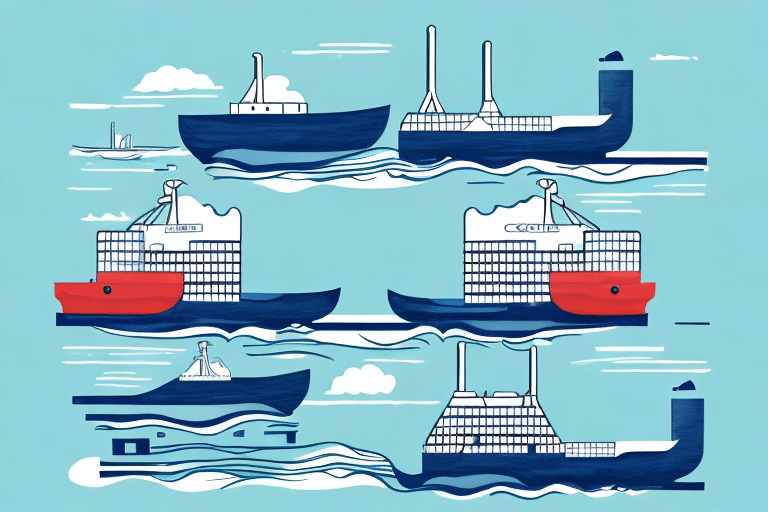Comparing Shippers and Carriers: Choosing the Right Option for Your Business
Shipping plays a pivotal role in the success of businesses dealing with physical products. Selecting the right shipping service is essential to ensure timely delivery, cost-effectiveness, and customer satisfaction. With numerous options available, understanding the differences between shippers and carriers is crucial in making an informed decision that aligns with your business needs.
Understanding Shippers vs. Carriers
Shippers and carriers offer distinct shipping services, each catering to different business requirements. Grasping these differences can help you choose the best fit for your operations.
What Are Shippers?
Shippers, often third-party logistics (3PL) providers, manage the logistics of shipping products for businesses. They act as intermediaries, connecting businesses with multiple carriers to optimize shipping routes and rates. By leveraging their network, shippers can offer flexible solutions tailored to various business needs.
What Are Carriers?
Carriers are transportation companies that directly handle the physical movement of goods. They own and operate their fleet of vehicles, providing dedicated services for businesses. Carriers typically offer specialized shipping options, such as expedited deliveries or bulk transportation, based on the specific requirements of their clients.
Key Differences Between Shippers and Carriers
- Flexibility: Shippers offer greater flexibility in shipping rates and routes by partnering with multiple carriers, whereas carriers have fixed rates and predefined routes.
- Responsibility: Shippers manage the entire shipping process, including packaging, labeling, and tracking. Carriers focus solely on the transportation aspect.
- Specialization: Carriers often provide specialized services, such as refrigerated transport or oversized shipments, while shippers offer a broader range of logistic solutions.
Factors to Consider When Choosing a Shipping Service
When evaluating shippers and carriers, consider the following factors to ensure the selected service meets your business needs effectively.
Reliability and Reputation
Reliability is paramount in shipping. According to a Statista report, timely delivery is a top priority for customers. Research the reputation of potential shippers and carriers by reading reviews, checking ratings on platforms like Trustpilot, and verifying their track record for consistent on-time deliveries.
Insurance and Liability Coverage
Ensure that the shipping service provides adequate insurance coverage for your products. This protects your business against potential losses due to damage or theft during transit. Review the insurance policies and liability terms offered by shippers and carriers to ensure they align with your risk management strategies.
Shipping Rates and Cost Efficiency
Cost is a significant consideration for any business. Compare the pricing models of different shippers and carriers to find the most cost-effective solution. Consider factors such as volume discounts, fuel surcharges, and additional fees for services like tracking or expedited shipping. However, prioritize value over price to ensure quality service.
Delivery Times and Speed
Meeting customer expectations for delivery times is crucial for maintaining satisfaction. Analyze the delivery speed options provided by shippers and carriers. For instance, UPS and FedEx offer various expedited shipping options to meet urgent delivery needs.
Tracking and Communication
Effective tracking and communication capabilities allow you to monitor shipments in real-time and address any issues promptly. Choose a shipping service that offers robust tracking systems and transparent communication channels. This ensures you stay informed about the status of your shipments at all times.
Hidden Fees and Additional Charges
Be vigilant about hidden fees and additional charges that may not be immediately apparent. Carefully review the service contracts for any extra costs related to handling, packaging, fuel surcharges, or delivery to remote areas. Understanding the complete pricing structure helps avoid unexpected expenses.
Environmental Impact and Sustainability
Sustainability is becoming increasingly important for businesses. Opt for shippers and carriers that prioritize eco-friendly practices, such as using electric or hybrid vehicles, minimizing packaging waste, or offering carbon-neutral shipping options. This not only reduces your business's environmental footprint but also appeals to environmentally conscious customers.
Expert Tips for Selecting the Right Shipping Service
To further assist in your decision-making process, consider the following expert tips:
- Compare Multiple Options: Evaluate rates and services from various shippers and carriers to identify the best value proposition.
- Understand Customer Expectations: Align your shipping choices with your customers' preferences for delivery speed and reliability.
- Assess Service Quality: Choose services with a proven track record of reliability and excellent customer support.
- Review Insurance Policies: Ensure that the shipping service's insurance coverage adequately protects your products.
- Beware of Hidden Costs: Thoroughly examine contracts to identify and understand any potential hidden fees or additional charges.
Conclusion: Making an Informed Decision on Shippers and Carriers
Choosing between shippers and carriers requires a comprehensive evaluation of your business needs, customer expectations, and the specific services each option offers. By considering factors such as reliability, insurance coverage, cost efficiency, delivery speed, tracking capabilities, and environmental impact, you can select a shipping service that not only meets your logistical requirements but also enhances your overall business operations.
Additionally, prioritizing sustainability in your shipping choices can contribute to a positive brand image and align with the growing consumer demand for environmentally responsible practices. With careful research and strategic selection, you can partner with a shipping service that supports your business's growth and success.






















